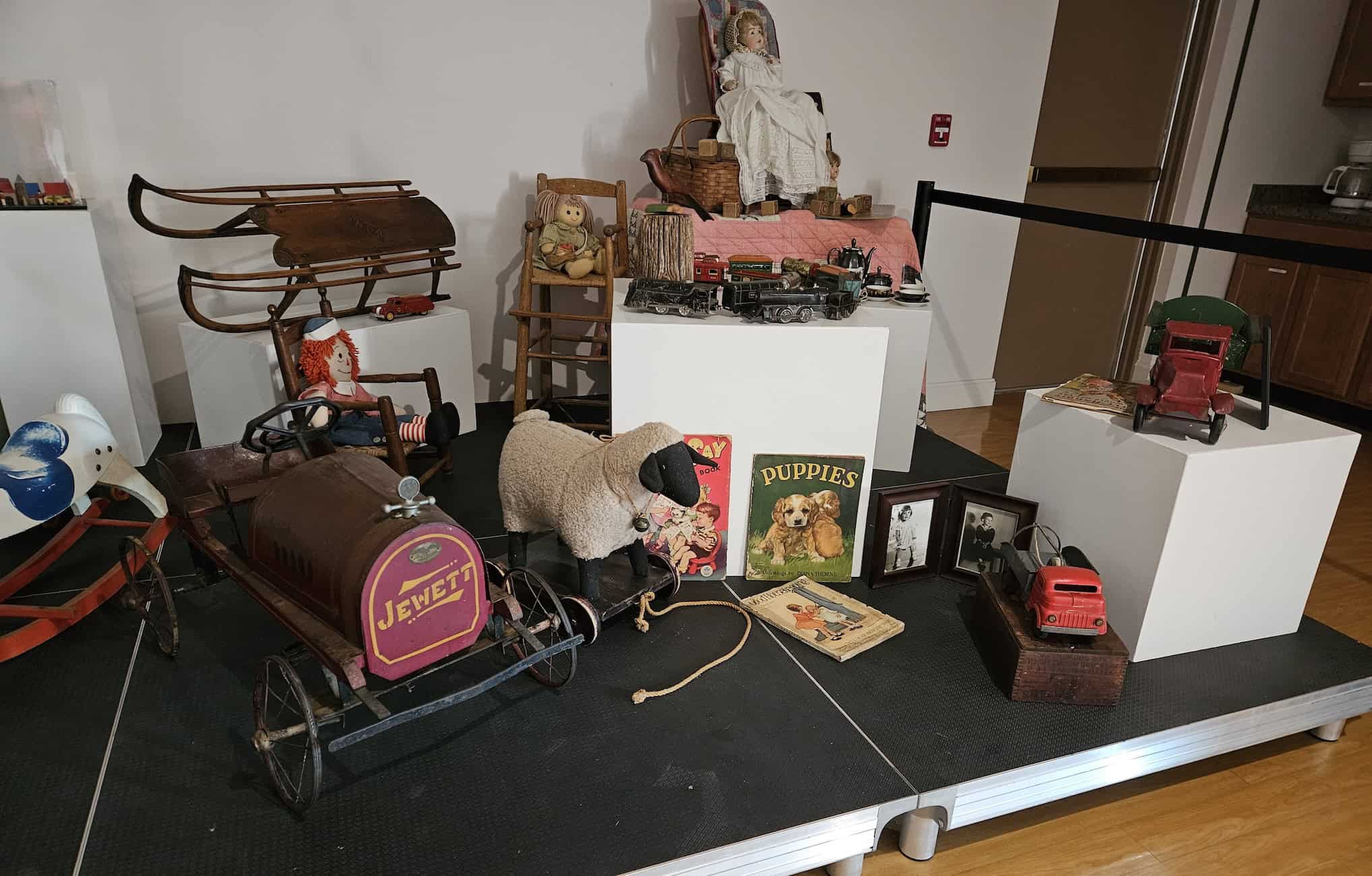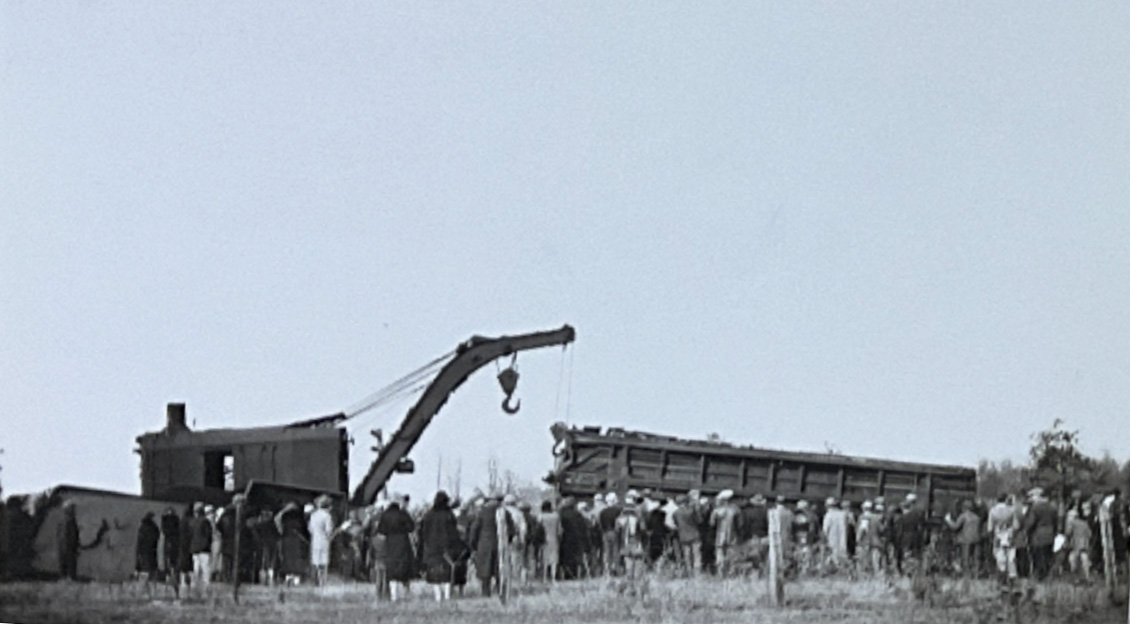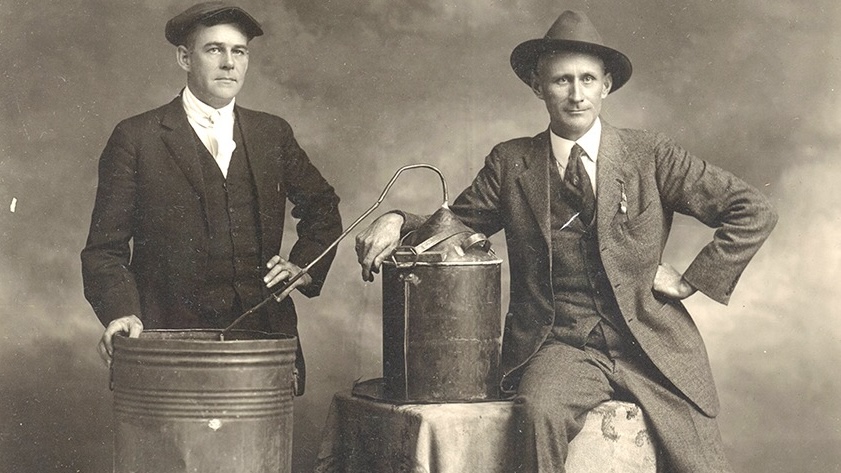Having not quite served two full terms due to the assassination of William McKinley, President Theodore Roosevelt adhered to George Washington’s tradition and decided not to seek a third term in 1908. Instead, he chose and heavily orchestrated the rise of Secretary of War William Howard Taft as his replacement. This “anointment” would be a critical charge against the Republicans from challengers William Jennings Bryan of Nebraska and his running mate, John W. Kern of Indiana.
Taft formally accepted the nomination in Cincinnati in July, and as was customary, did not begin campaigning for the presidency until the fall. Come September 7 — a mere two months before election day — Taft kicked off his campaign tour in Sandusky, Ohio.
Both campaigns whistled through towns to meet and connect with voters. The Midwest and Plains were seen as critical states that would decide the election. Missouri had turned out for Roosevelt in 1904 for the first time in decades, and Taft was keen to keep it.
Taft explained to one reporter in early October 1908, “It is an augury that Missouri is going to ‘show’ somebody at the next election…[she] does not intend to remain a mysterious stranger, but will become a regular resident among Republicans.” One of Taft’s campaign tour stops was set in Warrenton.
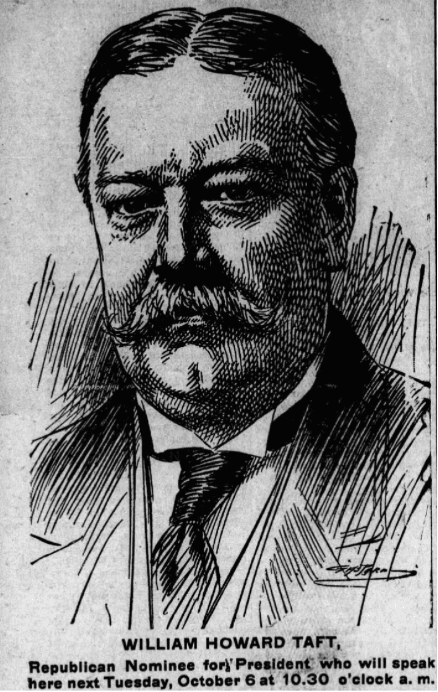
Taft appears in Warrenton right on schedule
Several thousand people were milling around the Warren County Courthouse on Tuesday, October 6, 1908. By 9 a.m. it seemed everyone in the county and more than a few hundred from St. Charles, Lincoln, Franklin, Gasconade, and Montgomery counties made the trip into Warrenton, too.
The St. Louis Republican Glee Club regaled people with their voices and led crowds in a series of campaign songs. “Their singing was pronounced A1 by many of our good judges of music,” wrote a report in the October 9, 1908 Warrenton Banner.
St. Louis attorney and reformer Leonidas Dyer spoke for twenty minutes about the accomplishments of the Republican Party in the last eight years. The progressive era accomplishments of the Republican Party under presidents William McKinley and then Theodore Roosevelt were legion. The “Square Deal” expounded by Roosevelt brought trust-busting action that broke up monopolies like the Northern Securities Company, conservation of natural resources and the formation of our modern National Parks Service, and the increase in consumer safety through food, drugs, and workplace and railroad safety.
After Dyer’s brief remarks, a procession led by the band and Glee Club marched to the Warrenton Train Depot to await Taft’s train. As thousands of people crowded in on both sides of the tracks, it was said every vantage point was occupied.
The welcoming committee had staked out a desirable location up front for the 600 local school children, orphans, and Central Wesleyan students, each carrying a small U.S. flag that they began waving vigorously as the train steamed in from around the corner at 10:30 a.m. as scheduled.
Looking large at around 300 pounds, Taft appeared “on stage” on the train’s caboose surrounded by two campaign aides. The crowd erupted at his appearance. Taking off his hat, Taft smiled and waved back, subtly encouraging them to calm down.
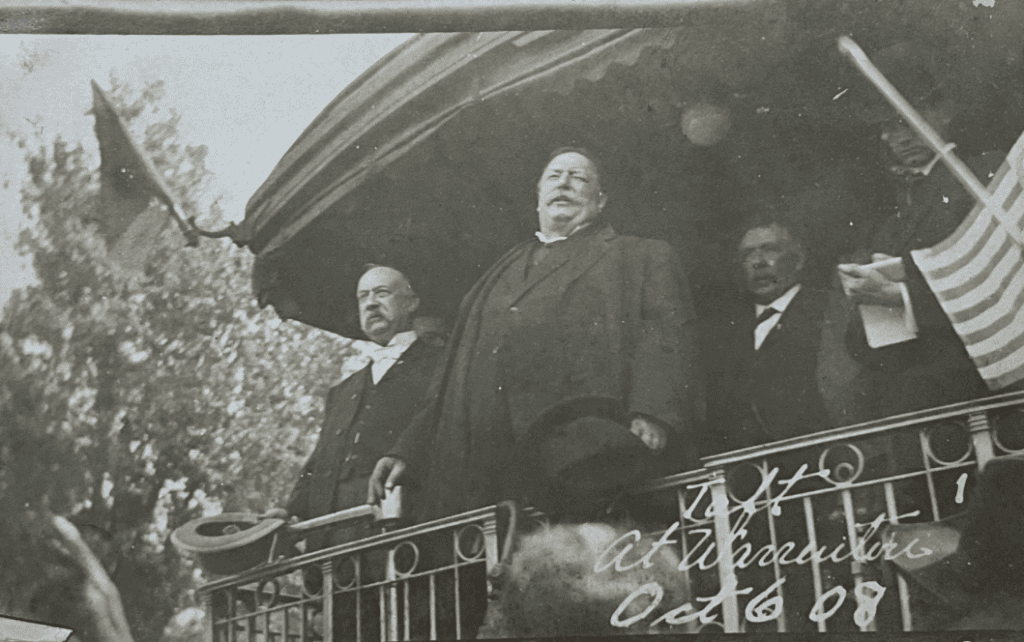
As the applause and cheers died down, everyone leaned in to hear what Taft had to say. But Taft was “unable to speak above a whisper.” All the campaigning had driven him hoarse. It is likely that even the children positioned directly in front of Taft could not hear much of what he was saying. A journalist for the Warrenton Banner, presumably stationed right under Taft’s platform, reported:
“[Taft] believed it useless to make a talk in so strong a republican county as Warren. He congratulated the citizens upon the prosperous condition in which they found themselves and promised that if elected…he would do everything in his power to have the prosperous conditions continued.
He made reference to the educational facilities here and said that he was delighted to know intimately a former instructor of Central Wesleyan College. His remarks were necessarily very brief, since his train was scheduled to stop only five minutes. The main object being to give the people an opportunity to see the distinguished statesman.”
The quick stop was new for American voters. Bryan and Taft had been criss-crossing the country, often just hours behind one or the other at the same depots, a first for presidential politics. Bryan could easily talk for two hours or more, but both nominees settled into shorter 10-30 minute talks that would become a hallmark of modern, sound-bite driven campaign media.
The 20th century brought more political novelty as America’s star was on the rise globally. American influence became noticeable in international affairs under Theodore Roosevelt. Taft was riding this Republican wave of support and goodwill as the party continued to tout Roosevelt’s progressive policies, the party’s support of protective tariffs and the precursor to the Federal Reserve System, enforcement of railroad rate laws, a reduction in work hours and reducing the work week from 6 or 7 days to 5, and the proliferation of a strong national defense and continuing improvements in civil service reforms.
After Taft’s five-minute greeting, the train whistle sounded and took off down the tracks. School children were instructed to return to their classrooms. Many adult residents went back to their homes or offices, but a great many took the time to shop and hear from other statewide candidates.
Taft Day speakers Swanger and Maring “did not disappoint”
Capitalizing on the expected crowds for Taft’s visit, Republican Missouri Secretary of State Swanger and Wilbur F. Maring, Republican candidate for Missouri State Treasurer, addressed a large crowd filled to capacity in the circuit courtroom at the Warren County courthouse.
Mr. Maring took the platform first and provided statistics on the Treasurer’s office, noting the “steal” of several hundred thousand dollars by the prior Democratic treasurer earmarked for schools that was instead allocated to the state’s general fund. “This, of course, was done in accordance with a law by a democratic legislature,” wrote a report in The Warrenton Banner. He encouraged voters to put him and a Republican legislature in control to restore the $800,000 in funds back to schools.
John Swanger approached the platform next and, for 90 minutes, “…kept the audience in a constant uproar.” He spoke about national issues, encouraging voters to send Taft to the White House to maintain “the constructive policies which he and his party favor and have favored during the past half century.”
“The brightest pages in American history are the records of the works of the Republican party during the past forty years,” he said. “Never before has a nation been known to make such prosperity in all lines of industry. Never before were all classes of people in a position to enjoy so much happiness and means…”
Taking shots at Taft’s rival William Jennings Bryan of Nebraska, Mr. Swanger reportedly asked the crowd to name one policy position of Bryan’s. Reportedly, “On inquiry, the audience was unable to reply.” Continuing, he said, “Democrats were equally as patriotic as Republicans and enjoyed the present Republican prosperity just as well. I want them to continue to enjoy it, and if they could be content with that, I have nothing further to say.”
Ever the politician, he did have more to say. He cited that the value of livestock is three times higher than it was during the last Democratic administration under Grover Cleveland. Deposits in banks have increased by $800,000,000, and in Missouri by $95,000,000.
Election day results are tallied, Taft wins Missouri narrowly
On election day, November 3, 1908, William Howard Taft narrowly won Missouri — 48.5% versus 48.41% for Bryan, but Taft won Warren County handily with over 60% of the county’s vote. Taft also won nationally to become the 34th President of the United States. Democratic nominee Cornelius Roach defeated incumbent Republican John Ephraim Swanger for Secretary of State. Democratic nominee James Cowgill defeated Republican Wilbur Maring for State Treasurer.



